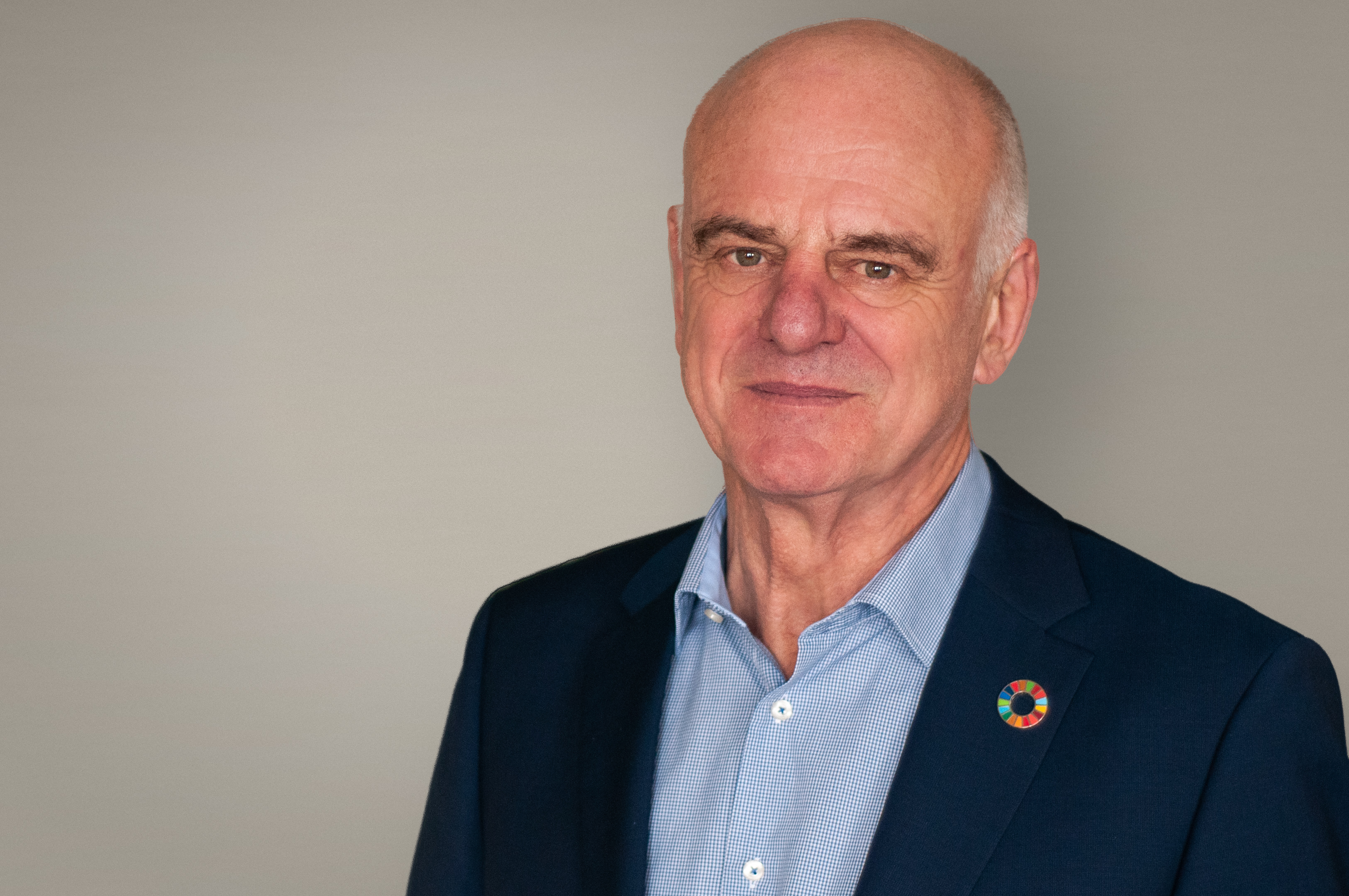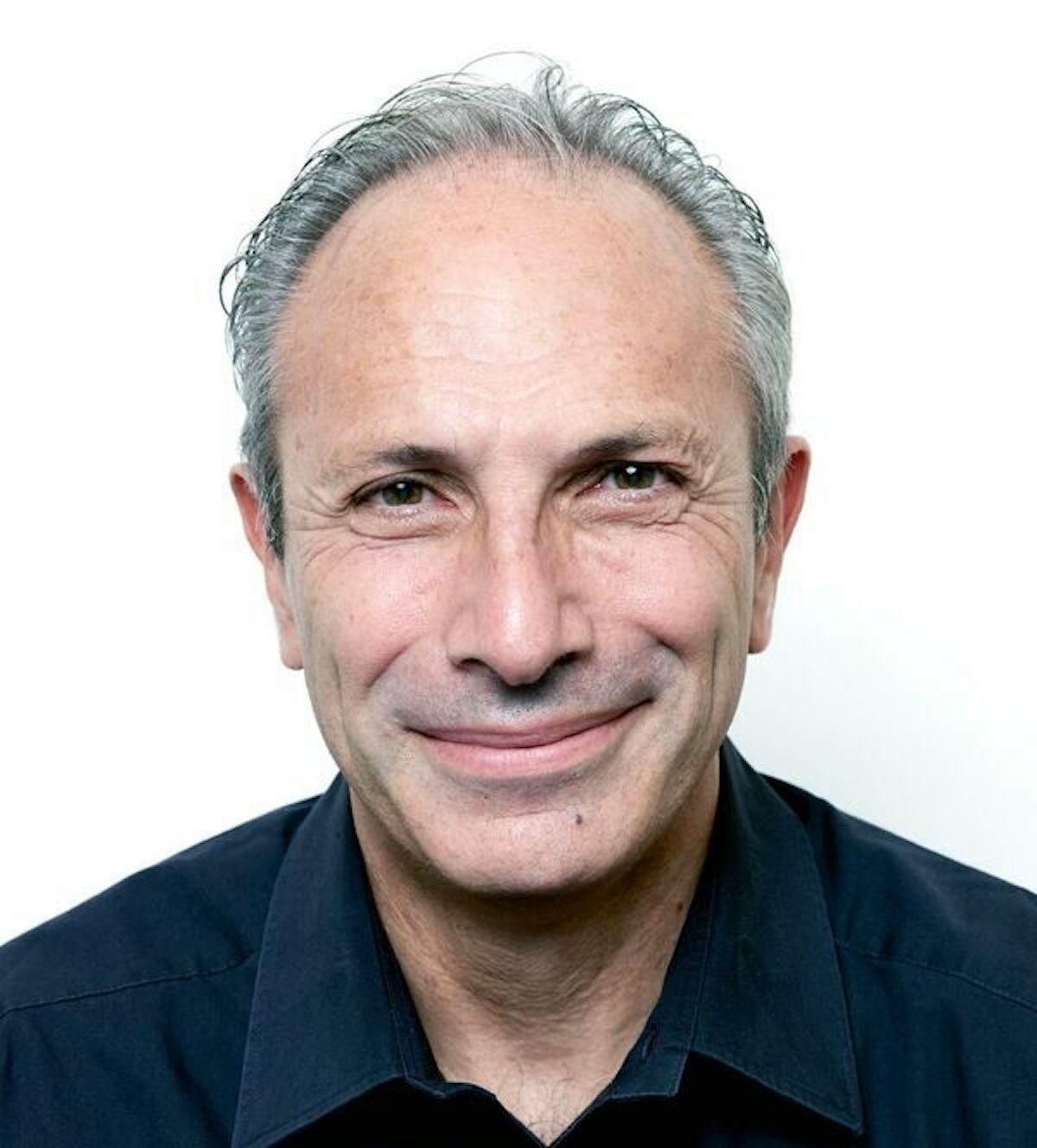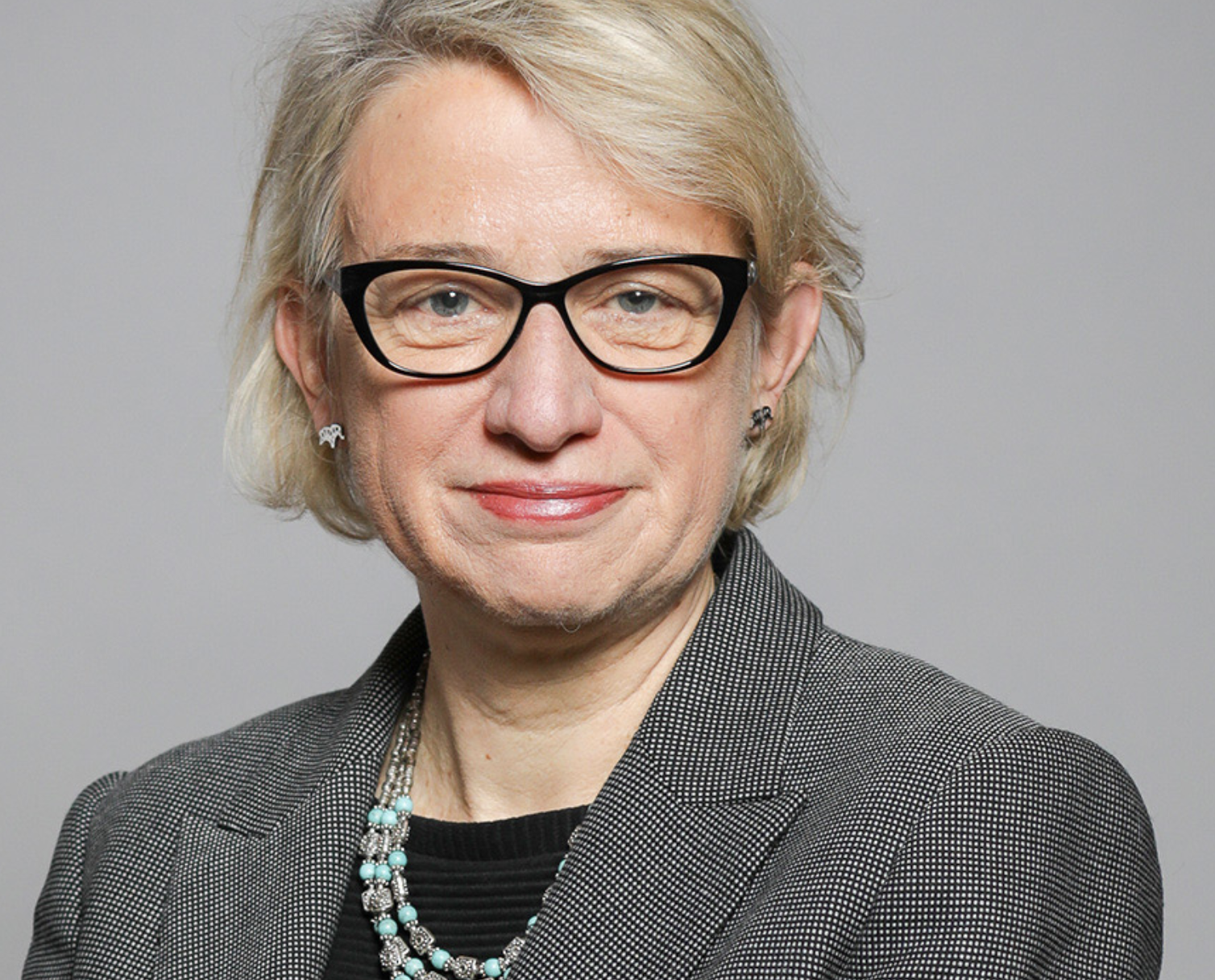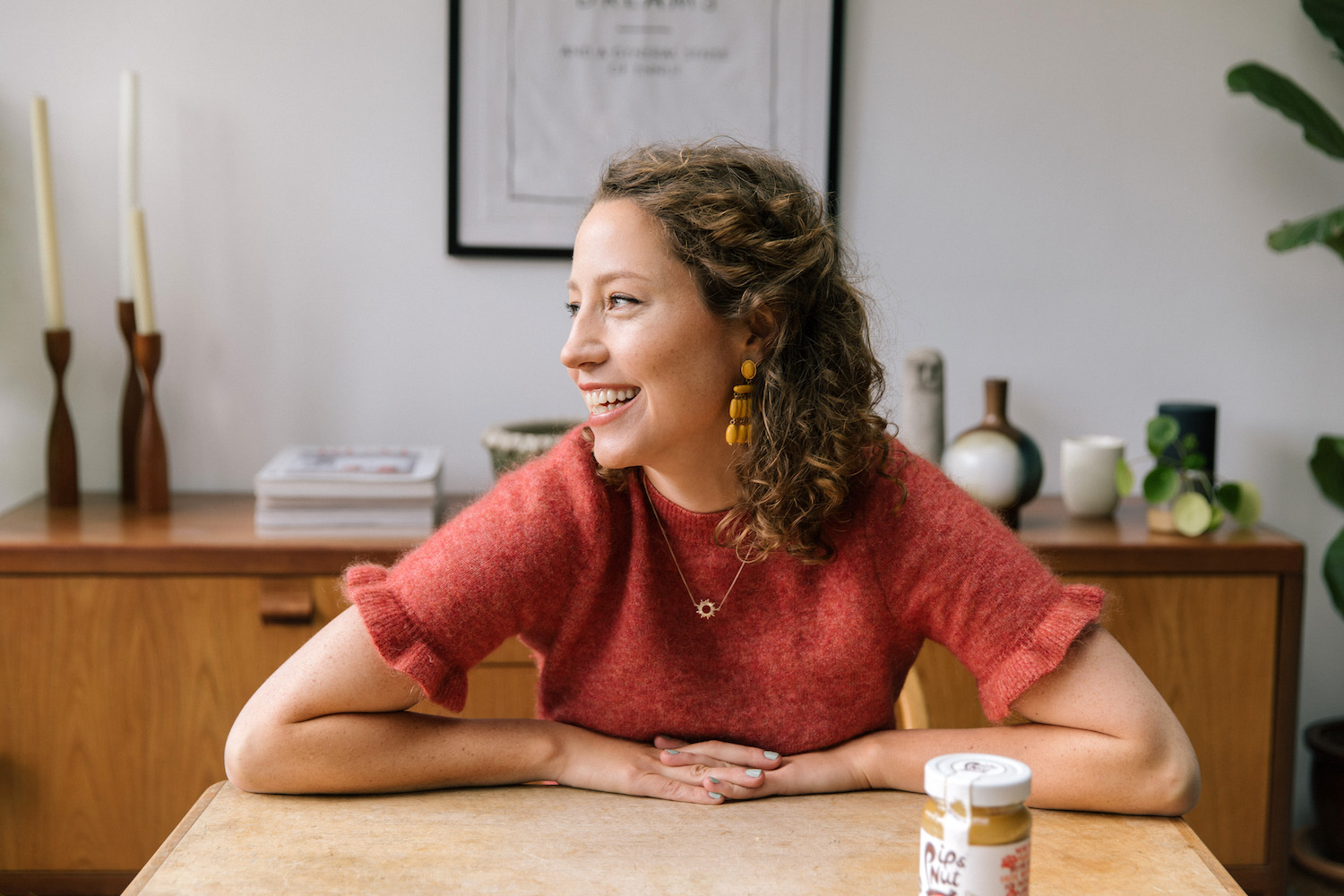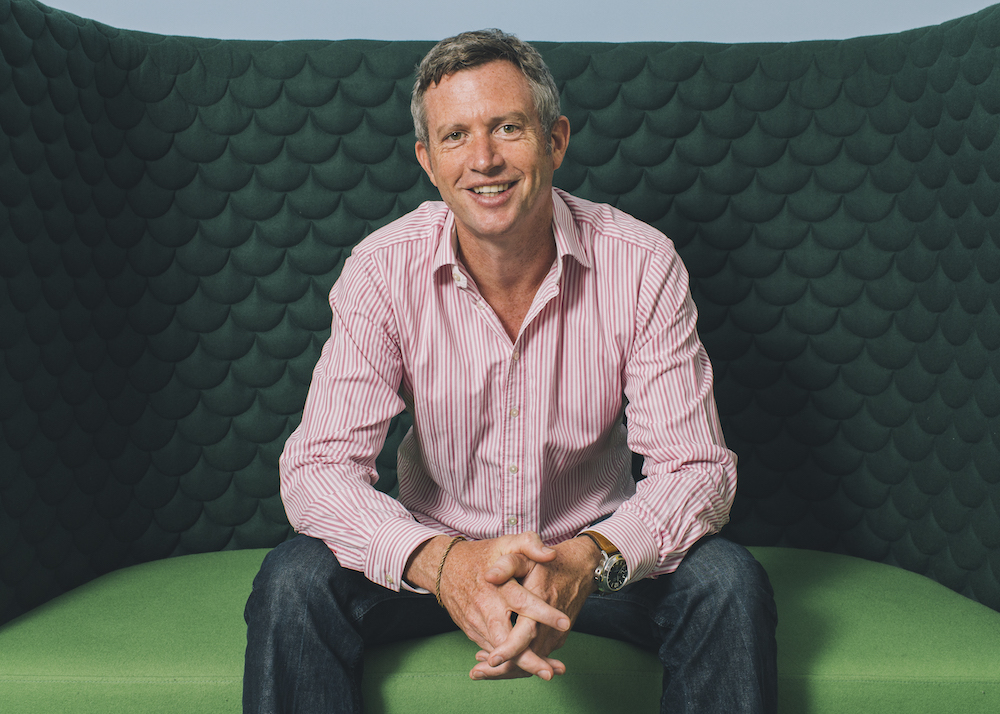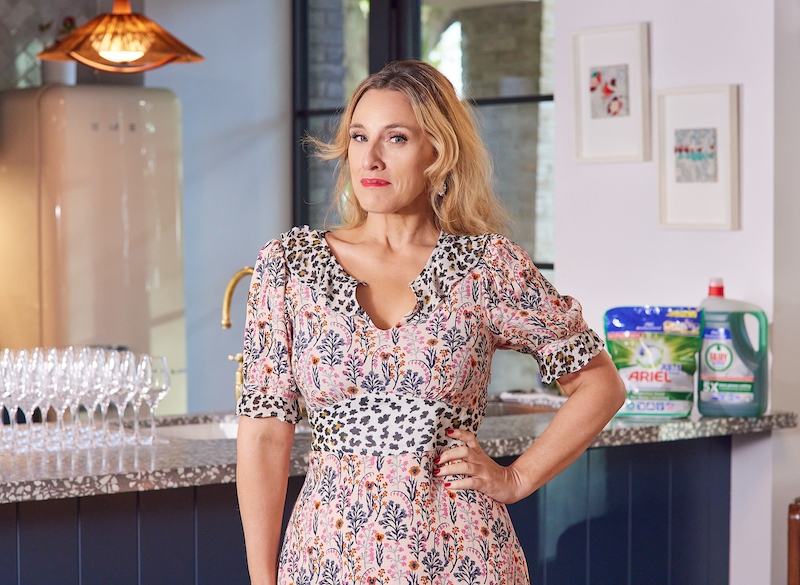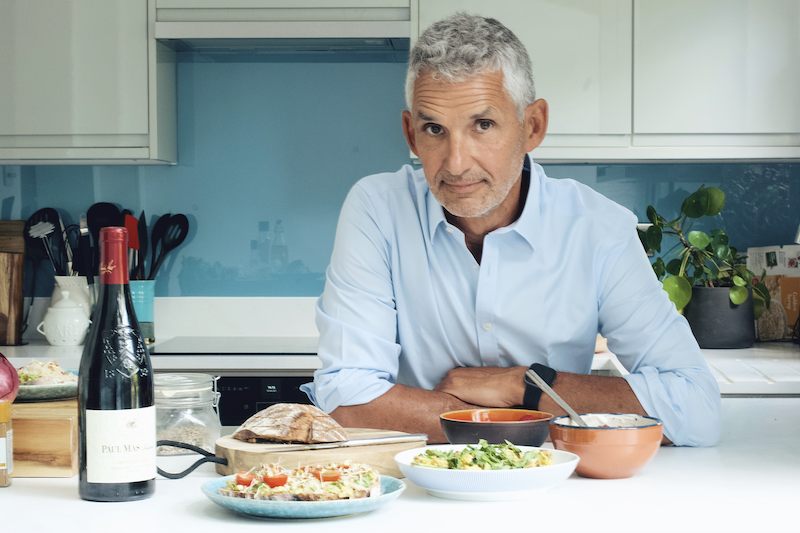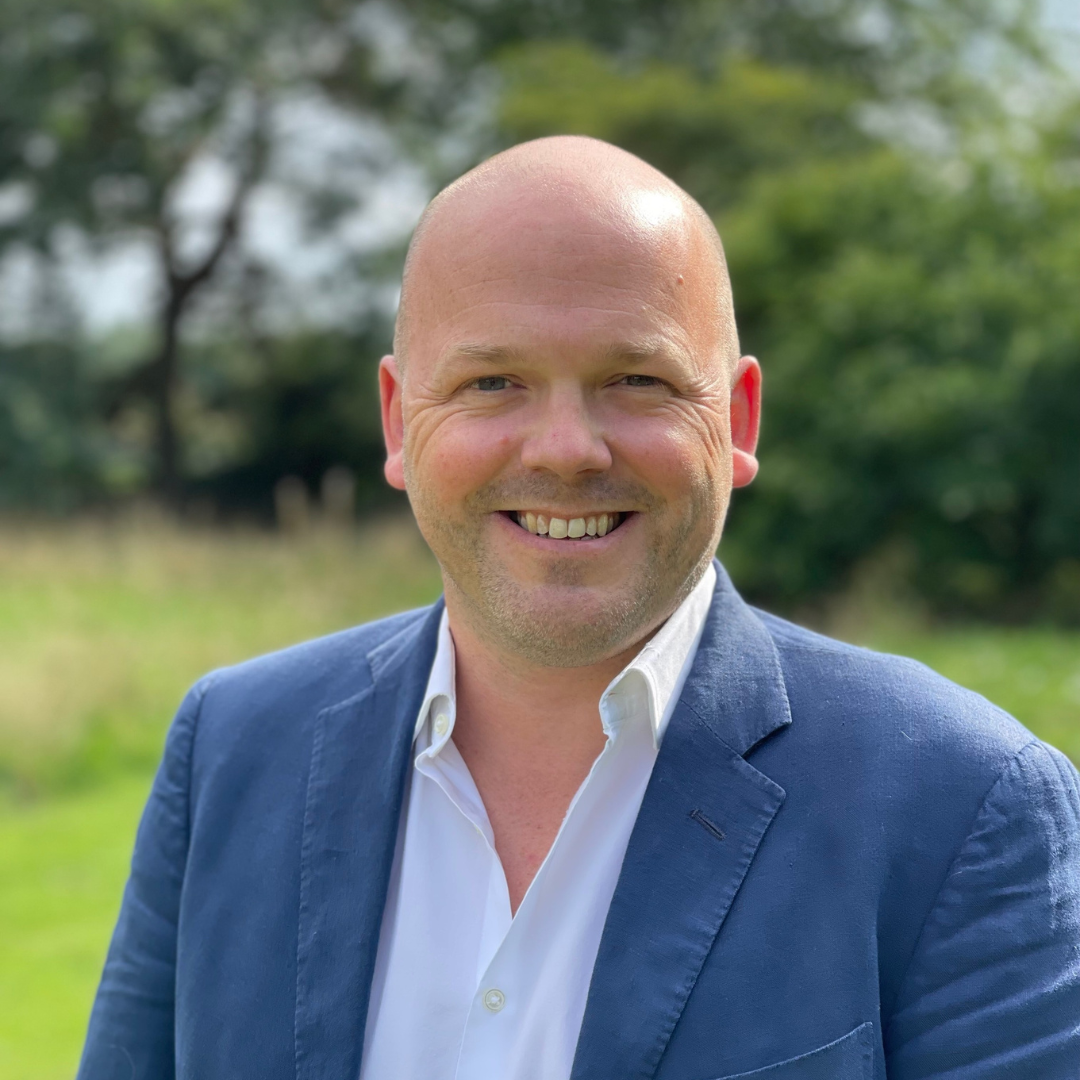Tim Spector: “Almost everything we’ve been told about nutrition is wrong”
The research that Professor Tim Spector has been involved in has been ground-breaking in revealing our highly individualised responses to food. In his latest book, Spoon-fed, he details how almost everything we’ve been told about nutrition is wrong.
Join us for a fascinating conversation with Tim about his book, and find out why he thinks that we need to have honest discussions about food, how to challenge outdated thinking about nutrition, and how the industry has to play a leading role in improving health. See the full transcript here
About Tim Spector
Tim Spector is a Professor of Genetic Epidemiology and Director of the TwinsUK Registry at Kings College, London and has recently been elected to the prestigious Fellowship of the Academy of Medical Sciences. He trained originally in rheumatology and epidemiology. In 1992 he moved into genetic epidemiology and founded the UK Twins Registry, of 13,000 twins, which is the richest collection of genotypic and phenotypic information worldwide. He is past President of the International Society of Twin Studies, directs the European Twin Registry Consortium (Discotwin) and collaborates with over 120 centres worldwide. He has demonstrated the genetic basis of a wide range of common complex traits, many previously thought to be mainly due to ageing and environment.
Through genetic association studies (GWAS), his group have found over 500 novel gene loci in over 50 disease areas. He has published over 800 research articles and is ranked as being in the top 1% of the world’s most cited scientists by Thomson-Reuters. He held a prestigious European Research Council senior investigator award in epigenetics and is a NIHR Senior Investigator. His current work focuses on omics and the microbiome and directs the crowdfunded British Gut microbiome project. Together with an international team of leading scientists including researchers from King’s College London, Massachusetts General Hospital, Tufts University, Stanford University and nutritional science company ZOE he is conducting the largest scientific nutrition research project, showing that individual responses to the same foods are unique, even between identical twins. You can find more on https://joinzoe.com/ He is a prolific writer with several popular science books and a regular blog, focusing on genetics, epigenetics and most recently microbiome and diet (The Diet Myth). He is in demand as a public speaker and features regularly in the media.
Related articles:
Tim Spector explores new connections between gut health, nutrition and health
How will personalised nutrition become mainstream?
What does the future of healthy beverages look like?
Episode transcript
Stefan Gates: Welcome to the Table Talk podcast brought to you by Food Matters in these podcasts, we explore a huge range of crucial issues and exciting developments in the food industry with brilliant guests drawn from all areas of expertise. I’m Stefan Gates. I’m a TV presenter and writer specialising in food and science. Today, we’re joined by Professor Tim Spector, professor of genetic epidemiology and director of the Twins U.K. Registry from King’s College, London. He’s a hugely respected researcher and author of the best selling The Diet Myth. His new book is called Spoonfed: Why Almost Everything We’ve Been Told About Food is Wrong. Welcome, Tim,.
Tim Spector: Hello there.
SG: Could you start off by doing my job for me and just giving us the short pitch for the book?
TS: Short pitch for the book is really the title. Spoonfed suggests really that the way we’ve been told about nutrition is very much a one way exercise, as if we were babies. We’ve been told to eat in a certain way that there’s a certain amount the right way of eating. Exactly how many calories exactly we should be having low fats and grazing, not gorging and basically lots of myths that it turns out are not based on actual science and should be really reversed. The book is really a mixture of how we’ve been fooled by the food industry, aided by government, into this over simplistic idea of food in order to sell us more highly processed products and increase the labels that the British people seem to really like. And this mixed with the idea that one size does fit all, whether it’s what food is good or bad, but as far as it is such thing as good guidelines and having two thousand calories is going to be perfect for all women and two and a half thousand calories for men. And so the idea that most of the information we’re getting at the moment is correct and B, that as the average person we should do exactly as the average study shows, is really totally flawed and they are the two things. So what ends up the logical conclusion is that we need to move towards personalised nutrition approaches because there isn’t one dot that does suit everybody. And we know that we respond massively differently to the same food. And the other is that we need to become experts because unfortunately, we can no longer trust the food companies and the government to give us the very best advice.
SG: Now, I’m really interested in the the main title spoonfed because it seems to imply something really interesting about us as consumers?
Are we stupid? Are we incurious or are we too accepting of what we’re told by everyone else? Well, I think a lot of a lot of that, especially your bugbear, salt, coffee, calories, vitamin pills, yoghurts, things like that. A lot of that information also comes from places like the school gates. You know, it’s about gossip, about people just like the communication of people just sending out mantras and assumptions about food. Do you think we should expect more of ourselves?
TS: Yeah, I do. And I think this is gossip.
This talk about food is quite natural because we’re all daily users of food. We all make hundreds of food choices every day and we lack a strong food culture that inherently tells us what’s good and bad. We don’t have the grandmother effect the other Mediterranean countries have that would tell you this is, you know, the perfect dish, this is the way to meet it. And that is what previous generations have done. So this is a village fired up by huge choice in what we eat and confusion in all areas about what is healthy and unhealthy, being seized on by the marketing people to increase that confusion so that, in a way, we then return to what we were so happy with, our old habits. Because you said, well, no one really understands this.
It doesn’t matter what I eat, I’m going to go back to whatever the cheapest thing is near the till now.
SG: Before we get into the question of why these lines lines just continue and perpetuated or self-perpetuating, let’s just delve into a couple of the specifics.
So you certainly talked about breakfast is is not necessarily the most important meal of the day. And again, these are sort of mantras. Some of these centuries old. The history of food is quite interesting because we tend to forget that it wasn’t that long ago that we never had breakfast?
TS: But certainly for the last hundred years, since the beginning of the Victorian era, we’ve been told the breakfast is the most important meal of the day. And of course, all the breakfast cereal companies came in and reinforce that idea. And it became a mantra. And there was a whole series of publicity campaigns to sell British eggs to mothers who feel guilty if they didn’t give them to their children in the morning, it did something terrible to them. And it became very much a sense of being British as well. The importance of breakfast, which you don’t see in other countries, and so is probably a view of food, which was served up by governments to shift dairy produce, but also cereal manufacturers, etc., making it mandatory to have this in it. And it’s amazing that even when the science starts to show that it’s not necessary, because they were saying that if you skip breakfast, for example, you just inevitably got fatter and you got so hungry in the day and your kid would run amok in the school and start attacking everyone. And it simply wasn’t true. In the last few years, we’ve done lots of studies now showing that on average, you certainly don’t get fatter if you skip breakfast and on average you get slightly thinner. But of course, there’s a huge range because some people do very well on breakfast and others don’t. And it shouldn’t be mandated that everyone at every age has to have breakfast or even the concept of you necessarily have to have three full meals and and three snacks a day, which is where we are now in the current environment. It’s very interesting why we persisted so long and it still persists. You go to the NHS websites now, they still say, you know, don’t skip meals. If there’s some science behind that, so, you know, lots of people don’t always feel hungry and we’re told this is bad if you skip a meal and I think that people get very emotional.
I talked about this on breakfast TV a couple of weeks ago and the vitriolic comments were as if I was trying to attack the British breakfast and take something away that was so important to us and I was trying to explain, actually I like breakfast, but, you know, it doesn’t mean you need it.
And some people don’t feel they have a need to have breakfast. And this is just another illustration of how we’re different, but also how we’re being misled now and one of these areas as well are calories.
SG: So tell us a little bit more about your your take on the falsehoods around calories?
TS: Calories have been around for over a century and they were calculated by this American chemist and it’s totally dominated our view of food. You can’t go to any supermarket without having these big calorie labels stuck over. And calorie counting is the main way of supposedly losing weight. And it turns out that the way calories are calculated, very inaccurate, can be out by twenty five percent. And that’s on food ingredients that’s even worse when you start putting them in restaurants and cafes and takeaways because that’s down to portion sizes and small differences get multiplied as you get down to the practical realities outside the factory. This is some really precise measure and that if you eat exactly the right amount of calories, we know how much you’re going to burn the other end. And so therefore it’s very easy to use that to lose weight. And there’s so many things wrong with it. And when that also hugely inaccurate because they don’t account for the way the food is broken down or processed, how easy it is to absorb. And we know that different people will generate a different amount of energy from the same food as well because of our own internal differences. I’m not a calorie denier. We are having this obsession that we can use calories to pick the best foods, it’s totally obscuring the fact that quality is much more important and long processed food is much more important. And it’s really painful to watch these, you know, this whole industry that’s come around about, OK, how much calories are in a doughnut versus, you know, a salad. And I’ve got your Fitbit watch that tells you how many calories you just burned. Therefore, you can allow yourself this as if this calories in, calories out is actually anything vaguely practical. And of course, we’re hugely different in not only how we use how we create energy from food, but also much more different in terms of the calories we burn. And this we aren’t able to measure accurately at all. But we all know that if we eat the same meals, some people get fat and some people get thin. So purely it’s just rubbish. The fact that there are these arbitrary levels and I think really detracts from people understanding about food in a way that totally suits the big food companies because they can sell anything as low calorie.
SG: So do I need to throw out my McCance and Widdowson’s composition of food now? That was my Bible?
TS: In fact, I think that’s just it’s good to know what’s in it, but I think it needs to go to the next level because we now know that the average bit of food contains at least twenty six thousand different chemicals in the average foods we’re eating.
SG: So this is the interesting point, I think that this fascinates me.
So you’re explaining that there are more complexities, that there are different different bodies and different physiology will cope with food in different ways. Isn’t that why the food industry simplifies things? Because it’s too much for people to handle? Or do you think it’s peddling falsehoods?
TS: I think it’s more the latter that they probably don’t think they’re falsehoods, they’re just simplifying what they say is the facts in a way that suits their purpose. So the general idea, and it’s also the government’s view, is that they’re a bit too dumb to actually understand what’s going on. And there’s no point in really educating us. And the only way really is to just focus on the very simplistic idea of fats, sugars, salt and nothing else really matters. And I think it’s industry and public health government. For the last 20 years, that have been pointing in the same direction and helping each other out, making a lot of pressure to make food cheaper, but the side effect is this is unhealthy.
SG: The other side to this is that you could say that processing food is cooking it when I’m when I make a and there’s probably about 20 ingredients in it by the time I’m finished. And then there are various different compounds within those ingredients, whether I want them there or not. You know, tomato has contains the substances that would be there would be eight different E-numbers in it if they had to be labelled on the tomato. And you mentioned bliss points. Now, a French chef making a delicious jus to pop on top of a bernaise sauce soaked steak would be looking for bliss points. Why is it different, do you think, when we’re talking about in this way?
TS: The elements we’re talking about, ultra processed food rather than processed because most food is processed even sourdough bread is processed. Artisan cheese is processed. So I think it’s where all the ingredients are derivatives of other ingredients rather than the original food. And you’re mixing it up in big vats and testing them against panels of volunteers to see which of this combination of the fats, the air and the sugar composition of these chemicals plus the flavourings make people want to eat more of it. I think it’s that artificial side of things that is the big difference. And the first trial of proper randomised study, seeing the effects of ultra processed food against regular natural food was only done last year, amazingly being blocked by the industry for ages. Incredible. This is in the US and they put people on equivalent diets, one made in factories and the other sort of made properly. And the difference was the people on the ultra-processed food came back to the buffet more. They always felt hungrier. They were never fully satisfied with the foods they’ve eaten. It’s that combination of chemicals that seems to be doing things differently to what you get to the satisfaction you get from eating the real plants and food. Ultimately every chef wants to get a bliss point. But you also you know, you don’t want to never feel full and keep coming back for the same pot. So I think that’s the addictive quality to it, that that makes them different and also makes it a very different effect on our gut health as well.
SG: And that’s one that’s a big, big shift comes in as well. And the work that you’re doing on that day, which we’ll come to in a second, seems to encompass that. But I’ve also always been amazed at the complicity of TV presenters. People like me, you go on telly and there’s so many people that peddle lies and mantras about food because because it makes people feel cosy. So calories, salt, coffee, you know that the overall concept that something that’s fattening is bad. Do you think that the media is generally complicit and is that egregious as well?
TS: I don’t know, I mean, I think that we haven’t challenged these dogmas for so long. It is a bit of a mystery and anyone who has in the past has been seen as a bit of a nutter. And I think. Food suffers a bit like religion. I think people like to belong to groups now, and we’ve seen this initially vegetarians, particularly vegans, gluten free people, you know, organics and people like to belong to a group. And therefore, TV presenters don’t want to alienate lots of people. So they tend to go along with the majority opinion about what seems to be, you know, the sort of Church of England type approach to food that’s safe and comfortable. And no one’s really going to argue with you rather than starting to question the faith.
SG: I think viewers actually they feel warm and cosy with cliches and metaphors. It makes them feel everything’s fine. Everything’s fine as it is.
TS: Yeah, well, these are sort of Bible stories online. And yes, one day we discovered that that’s bad for you. So now you can have all your products low in fat. And you can assuage that guilt. Yeah. There’s a way around it and you can have twice as many biscuits because they’re low fat or, you know, they’ve got sugar sweeteners.
SG: Now do you think your biggest bugbears are oversimplifications or is it like you mentioned, the idea that the proteins, carbs and fats are the building blocks of nutrition?
That’s not it’s much more complicated than that now is it those sorts of issues that most frustrate you or is it the more the idea that they’re all lies being perpetuated when people know that they’re wrong?
TS: I think there is sufficient confusion to give people a way out.
I don’t think it’s all these things that are actually universal. I think what we can say is that certain things, nutrition we don’t know about and other bits we do know about.
And the lies are that we know it all. And you know, the lies are in the NHS guidelines that full fat Yoghurt to low fat is good for you.
But I think the people honestly believe that’s true based on old data, and they just have rigid views that have to change.
I don’t think they’re deliberately lying, particularly the government advisors, but for over 20 years they’ve been getting grants, many of them for the food industry, saying that, you know, they want to work on the evils of high fat diets and why that’s bad for you. The industry is very good at just confusing the field, sowing the seeds with money to get to work in certain areas that just blur the edges to make sure that we don’t ask the key critical questions, which is why are ultra processed foods so bad for us? And it’s in a way, it’s a smokescreen.
And why are they paying for these studies on sports fields in school playgrounds? Why linking sport and exercise and fizzy drinks?
The idea that if kids run a lot, they can eat as much rubbish as they like.
It’s that kind of distraction from: “So that’s good. So we need more exercise. That’s the problem. Rather than actually if they didn’t eat and drink this rubbish. We wouldn’t have these problems at all.”
SG: Yeah, I think there’s also we need to move this on really to the question of solutions and answers.
And I’ve heard you talk about you have a support for the HFSS advertising ban to some extent. But are there positive ways to to fix things rather than using sort of negatives and banning and bans and and things? I mean, it’s very easy to say what we should educate the kids, but it’s not that it’s a much more complex approach. But is that what has to happen? Are there other solutions to these problems?
TS: Long term, we have to educate the whole population about food and that’s going to start at nursery school.
And to do that, we don’t have any teachers at the moment. There are no experts in nutrition that are useful in school. So it’s a whole new science needs to come out of nutritional education and that should be as important to us and probably more useful than learning algebra.
And as you said, a long term thing. It’s not going to fix things in the next five years.
So the UK has the highest rates of all processed food use, over 50 percent of meals. Portugal, for example, has the lowest in Europe, 10 percent. So how can we get that percentage down? And there’s only two ways, really. One is by making plants and natural foods cheaper and more available, particularly to the poorer parts of society. And the other is dissuading people from buying the junk foods and high sugar foods and extending the sugar tax to our processed foods. I think that there are two ways you do this. You can play around with labels and things. Some countries have done and extend advertising to ban any sort of packaging like cigarettes. I have a simpler food label, but I think essentially you’ve got to get a consensus in the country.
SG: Now, there’s also, I believe, the project that you’ve been working on as another project of your many is the Zoe project, which goes back to the complexities of nutrition and complexities of different bodies coping with different substances. Can you tell us a little bit more about that? And does that fit in very much with the the notions behind spoonfed?
TS: It does, and the study started three years ago.
Really, when I was starting to write spoonfed, and I got together with these two entrepreneurs, working on the Internet using algorithms on the Internet for advertising, they want to do some good in their lives. And so we raised money so we could do some really major studies in nutrition in order to collect individual level data that we could use for personalised nutrition. So what we did is we started with a thousand people, mainly twins in the U.K. and a few in the US and gave them identical meals. And followed them for two weeks using every medical device we could and measuring everything in them, including stool samples that got microbes and sugar monitors, exercise monitors, sleep etc. and.
What we showed initially blew me away because with an identical muffin and milkshake, these thousand people had eight fold difference in their blood responses.
These are all normal people. And so for the first time, we’re seeing, wow. We also saw that in identical twins. So you expect two genetic clones to have virtually the same responses, and no two people really responded to sugars, fats and information in the same way.
So that was a real ‘aha’ moment. Well, what if identical twins were different? What about all of us? So how can we then start tailoring how we respond to certain foods in a way that would help us long term by reducing these peaks in our glucose levels, our fat levels, which would allow the body to have much less stress on it long term. And that’s what we’ve done.
We’ve now increased the numbers to about four thousand people and we now have an algorithm that predicts with 80 percent success, how are you going to react to any other food once you’ve done this starting test and we now give an app that gives all your foods a rating from zero to 100 in terms of for you personally on how good that is going to be for your metabolism and you can use the active design, your own food plans, etc. We’ve just started a small level doing this commercial in the US and it’s going to be in the U.K. sometime early next year, but it’s a very new approach about it. We don’t talk about calories at all and it’s very much getting people used to thinking about food in a different way, about how it might engage with their own bodies rather than just eating it because it’s available and it’s filling and they hope to increase the diversity of what people eat.
So most diets are restricted. And I think the approach here is that every time you eat or somebody might give you 10 other alternatives, to increase the range of what we believe because we know that, great, the range of plants you eat actually the side effect is your gut health is very much better. You get more microbes and your metabolism and your immunity is much better. So we’re hoping this is going to take off in a big way and really start a new revolution about personalising our nutrition in the future, which at the moment you can only do with self experimentation. Which you have to do a lot of to be sure what’s going on unless you’re one of those people that has a dramatic response to fat’s or sugars, it’s quite hard to tell without the technology.
SG: So do you think that’s possibly a solution to the oversimplification there, the bundling of lies and mantras and cliches to throw that out and to have an app tell you what you are like?
I presume you have to you have to feed it some information to begin with?
Is it stool sample information and gut microbiome analysis and then put your trust in the app rather than the mantras that idiot TV presenter?
TS: I think that’s right. I think this is the era of big data.
And when you’ve got so much data, you can’t make head of sense as an individual. You need these algorithms to tell us what’s going on. And this is the modern world, many of the things we take for granted now, like maps and so on are all done through algorithms, because individually we could make those decisions.
And so I think this is the future that it is so complicated and that we need machines to do this for you and then transform it back into something simple that is free of commercial sponsorship or politics. And so hopefully these apps will become, you know, your trusted guide, your Google guide, your Wikipedia, whatever it is that you think is relatively free.
And you can make your own decisions based on that when you go shopping rather than, you know, what the big companies or supermarkets want you to buy.
SG: Hmm. If it stops TV presenters saying words like good, honest food and people taking that away is the truth, then I’ll be a buyer now. Well, good luck with the book and look forward to chatting to you again. You’ve been listening to the Tabletop podcast brought to you by Food Matters with Professor Tim Spector. And we’ve been talking about his new book, Spoon-fed Why Almost Everything We’ve Been Told About Food is Wrong. Go and buy a copy now if you can find one. Tim, thank you so much.
TS: My pleasure.



